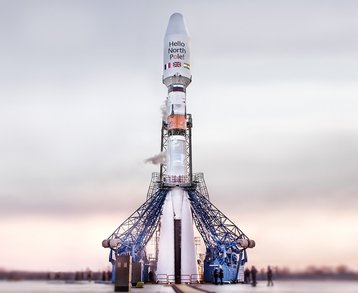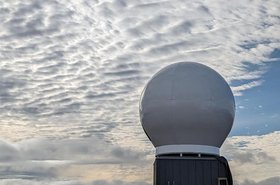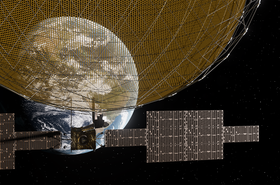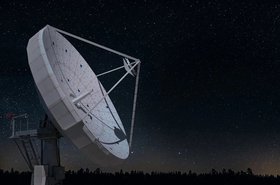Low Earth Orbit (LEO) satellite constellation firm OneWeb has signed a new distribution deal with Marlink. At the same time, the company's founder has separately raised $50 million with his latest satellite venture.
The satellite firm has signed a deal with the maritime communications company to offer connectivity to the maritime, energy, enterprise, and humanitarian sectors.
“We are delighted to be working with OneWeb to deliver a new global, high-speed, low latency connectivity solution that is in strong demand by our remote communication customers across the market segments we serve,” said Alexandre de Luca, president of energy, enterprise, and government at Marlink.
Carole Plessy, OneWeb’s VP of maritime, added: OneWeb, together with Marlink connectivity solutions, will allow the maritime industry a pathway to digitalization, both on and offshore. Marlink is the highly respected industry leader and we are delighted to be introducing the first steps in our partnership to the industry.”
The two companies plan to concentrate on the energy sector in regions above the 50th parallel north from January 2022, expanding to the maritime, energy, enterprise, and humanitarian sectors on a global scale from January 2023. Together OneWeb and Marlink will deploy, test, and demonstrate several types of user terminals and LEO connectivity services to customers across those market segments.
The LEO satellite firm has previously signed distribution deals with Airbus, Hughes, Peraton, AT&T, BT, SoftBank, Rock Networks, MOL, Alaska Communications, Galaxy Broadband, Pacific Dataport, Neom, Vocus, Field Solutions Holdings (FSG), HCIPL, and Tampnet.
Last month LeoLabs announced OneWeb as a new customer of its Collision Avoidance web data & analytics service. The multi-year deal will see the satellite firm use LeoLabs satellite & space junk location software to manage potential collision detection and avoidance of its fleet.
OneWeb/O3b founder Wyler raises $50m for new satellite venture
This week also saw E-Space raise $50 million for its own planned satellite constellation. Founded by Greg Wyler, who previously founded both O3b Networks (acquired by SES) and OneWeb, the company aims to launch up to 100,000 satellites.
The company says it will use a ‘novel peer-to-peer satellite communication’ method and dedicated constellations will ensure sovereignty and ‘eliminate exposure to foreign entities’. The investment round was led by Prime Movers Lab.
"One of the best ways to understand and manage Earth is from space," said Wyler, who left OneWeb around the time of its 2020 bankruptcy. "We designed E-Space to democratize space, to enable the collection of continuous data about our planet with real-time information of sensors and devices across the world to combat climate change, and to upgrade our electric grids. Importantly, we've built sustainability into everything we do. We are designing our systems to not only prevent space debris generation, but to eventually actively reduce space debris so generations to come will be able to access the power of space."
The investment fully funds E-Space's "Beta 1" launch of its first test satellites in March 2022 as well as its second "Beta 2" launch later this year. Mass production is slated for 2023. The company is composed of two independent entities based in France (E-Space SAS) and the United States (E-Space, Inc.).
"Greg is an icon of space innovation with an unparalleled track record of pushing the industry forward by turning bold ideas into everyday reality," said Anton Brevde, partner at Prime Movers Lab and E-Space Board Member. "E-Space is uniquely built to bring the power of space to any business or government while actively reducing the existential threat of space debris. The company already has several advanced conversations with major customers and is poised to take satellite mesh networks mainstream."
In an interview with SpaceNews, Wyler said the company’s machines would be built in-house (OneWeb’s are built by Airbus, one of its investors) and would likely look for another round of funding by next year. Wyler was also part of Rwanda’s 2021 filing with the ITU for a constellation of 300,000 satellites, but it's unclear if E-Space is directly involved in that potential project.








